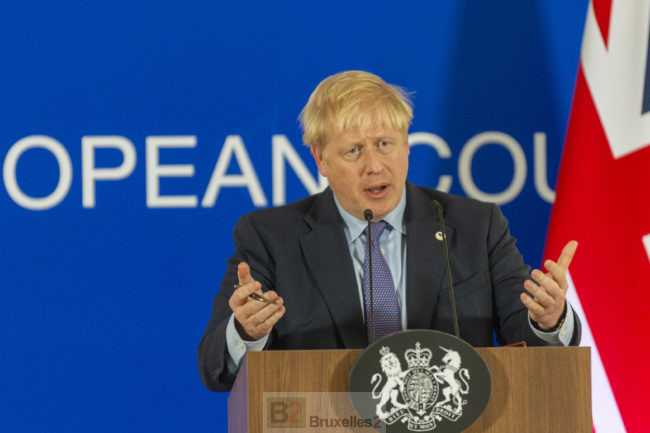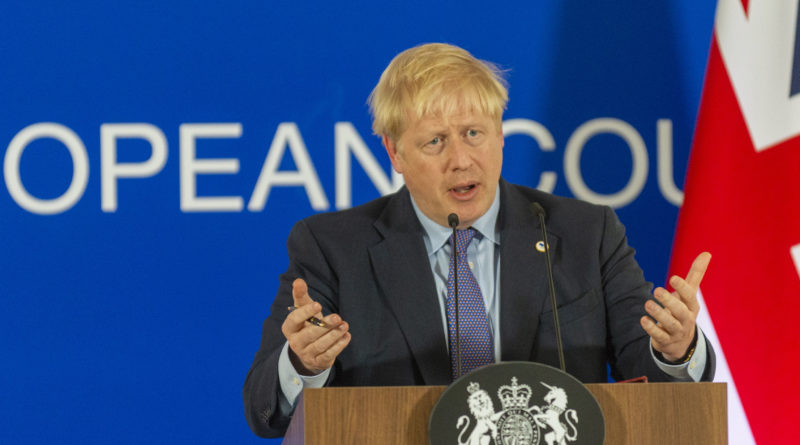Boris Johnson does not play fair play. The UK is not a loyal partner of the EU
(B2 - exclusive) According to the agreement signed between London and the Europeans, in the context of the United Kingdom's withdrawal from the European Union, the United Kingdom must behave “constructively and responsibly”. A point recalled during the last extension at the end of October. It is clear today that the British are not playing the game (at all)...

The non-appointment of a European commissioner
The best-known example is the absence of appointment of a British commissioner in the future European Commission. Reason given by Boris Johnson: the parliamentary elections which oblige the government to refrain from any international appointment. We can understand... But this forced a legal and political sleight of hand with the launch of a similar infringement procedure by the European Commission against the United Kingdom. While the 27 EU ambassadors were tearing their hair out to concoct a decision validating the European Commission by 'forgetting' the 28th Commissioner (British).
The refusal to adopt the budget of two agencies ...
But two decisions taken very discreetly in recent days show that the British 'position' is not 'fair play'. The United Kingdom has thus successively refused to validate the increase in the budgets of the European Defense Agency (EDA), in mid-November, and more recently of the EU satellite center (SatCen). Read : European Defense Agency. Budget increase blocked by UK) and Boosting EU satellite center budget: 'No' says UK). Highly weighed decisions and where the order to block any increase was taken directly in London, at the Ministry of Defense, as with the Prime Minister.
... related to European security and defense
These two structures, dependent on the High Representative of the EU, are not very large. They are nonetheless very useful for European defense autonomy: one to appraise all defense projects in cooperation, the other to provide satellite analysis products to Member States. This is perhaps what bothers London. Because, in terms of the budget, we cannot say that the impact is significant. The planned increase represented respectively 2,375 million euros for the EDA, 1 million euros for the SatCen, in total, all countries combined. Reduced to the share of the budget of the British Crown, this did not exceed 500.000 euros. We cannot say that this could endanger the British deficit.
A position that is not very fair...
This position constitutes, first of all, a clear breach of the commitment not to " not compromise the proper functioning of the Union and its institutions " and of " refrain from any measure likely to jeopardize the achievement of the objectives of the Union (see box). The electoral stakes certainly weighed; with the UK government scared of any sense of being able to extend its EU membership.
...contradictory with British statements
But it is contradictory with the British desire to affirm that it remains the guarantor of European security before and after Brexit, or even to sign an agreement immediately after Brexit to continue to be a stakeholder in and benefit from these European structures. , as indicated by a note from the British Ministry of Defense received by B2...
(Nicolas Gros-Verheyde)
The British commitment
“This new extension should not compromise the proper functioning of the Union and its institutions. [...] The United Kingdom will remain a Member State until the new withdrawal date, with all the rights and obligations which flow therefrom [...], including the obligation to propose a candidate for its appointment as a member of the Commission. The European Council recalls the United Kingdom's commitment to act constructively and responsibly throughout the extension period, in accordance with the duty of sincere cooperation […]. To this end, the United Kingdom shall facilitate the Union's accomplishment of its mission and shall refrain from any measure likely to jeopardize the achievement of the Union's objectives, in particular when it participates in the decision-making processes of The union. »
Excerpts from the european decision taken on October 29, 2019 extending the Brexit deadline until January 31, 2020

